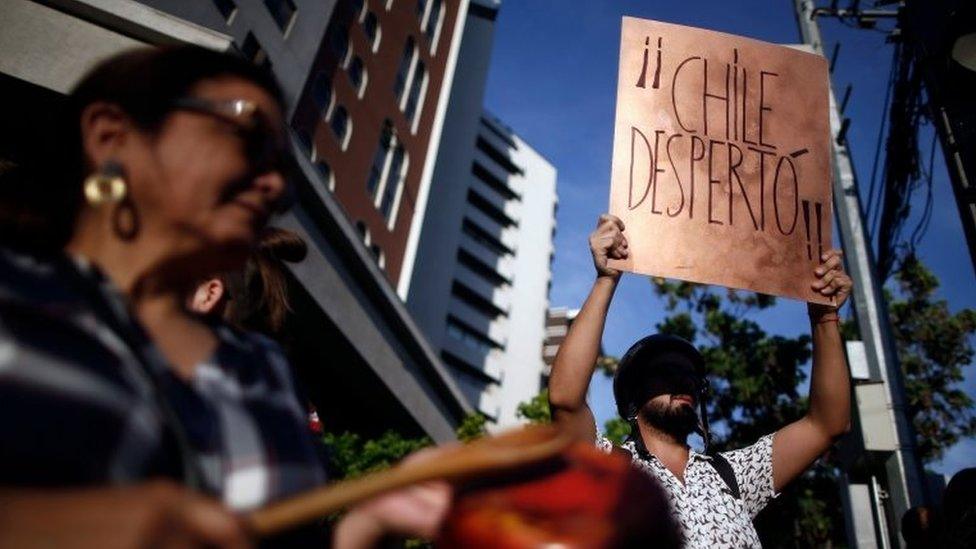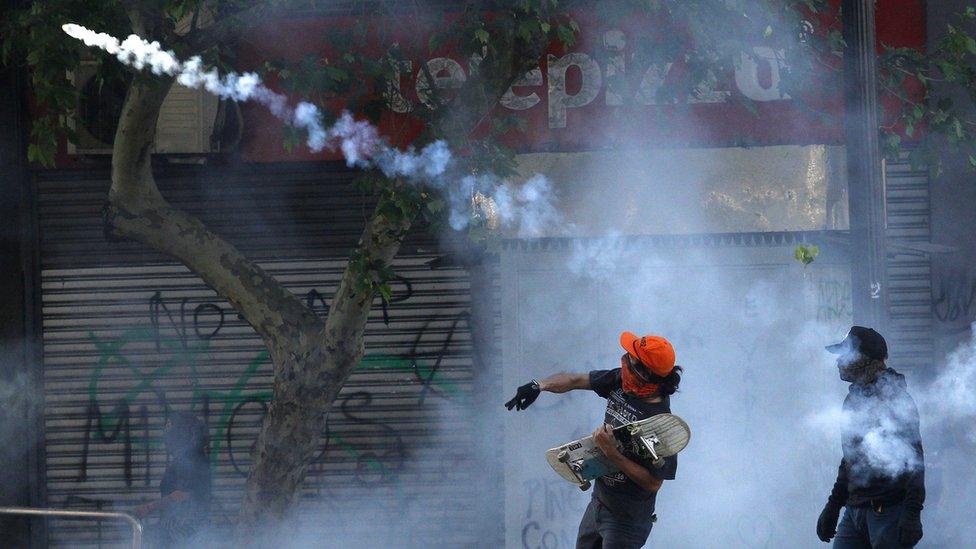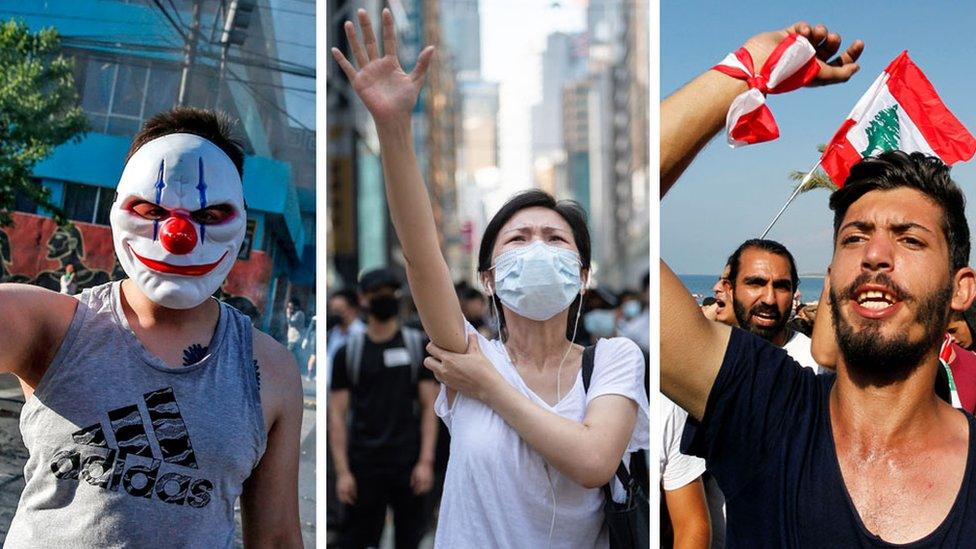Chile protests: One million join peaceful march for reform
- Published
Chile's 'historic' protest march from above
An estimated one million people have joined a peaceful protest march in Chile's capital, calling on the government to tackle inequality.
Participants walked for miles around the city, banging pots, waving flags and calling for reform.
Santiago's governor said it was a "historic" moment for the country, which has seen days of protests.
President Sebastián Piñera said the government had "heard the message".
"We have all changed. Today's joyful and peaceful march, in which Chileans have asked for a more just and unified Chile, opens hopeful paths into the future," he wrote on Twitter.
Earlier on Friday, politicians and officials had to be escorted out of the Congress building in the city of Valparaiso, after anti-government activists tried to force their way in.
What happened at the march?
Santiago Governor Karla Rubilar said a million people had marched in the capital - more than 5% of the country's population.
On Twitter she said the protesters "represent a dream for a new Chile."
Allow X content?
This article contains content provided by X. We ask for your permission before anything is loaded, as they may be using cookies and other technologies. You may want to read X’s cookie policy, external and privacy policy, external before accepting. To view this content choose ‘accept and continue’.

Protesters also took to the streets in every major Chilean city.
"We're asking for justice, honesty, ethical government," 38-year-old Francisco Anguitar told AFP news agency in Santiago.
Many participants were calling for the resignation of Mr Piñera.
What is the background?
The protests were originally sparked by a now-suspended increase in metro fares but grew to take in wider grievances over living costs and inequality.
In the days of demonstrations, there have been outbreaks of looting and arson. At least 16 people have died since the unrest began a week ago, hundreds have been injured and more than 7,000 people have been detained.
Chile's military has taken over security in Santiago, which is now under a state of emergency with night-time curfews and 20,000 police on the streets.
More than 5,000 people have been detained since protests began
Chile is one of Latin America's wealthiest countries but also one of its most unequal - it has the worst levels of income equality among the 36 member nations of the Organisation for Economic Co-operation and Development (OECD).
The president on Wednesday announced a package of reforms aimed at ending the protests, including increasing the basic pension and minimum wage. But this has done little to quell the unrest.
- Published23 October 2019

- Published21 October 2019

- Published11 November 2019
